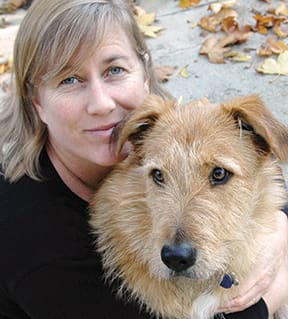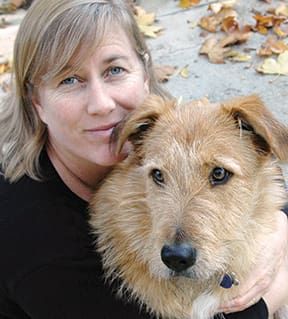My mom met her best friend when she was in high school, and they remained close friends until my mom’s death in 2002. They met their husbands-to-be at about the same time, married within a year of each other, had a similar number of kids. They arranged for their two families to spend a lot of time together, and all of us kids became friends, too. As we matured, we grew closer to our moms’ best friends than we were to our genetic aunts.

288
It wasn’t until I was a young adult, however, that I noticed an interesting thing about the relationship between my mom and her best friend: As much as the two women took an interest in and genuinely loved each other’s kids, they were sometimes rather critical of the other’s offspring, and competitive (in a deceptively subtle way) about their own kids’ accomplishments. For example, my brother was wild in his youth (drugs, booze, motorcycles, trouble in school) – and so was my mother’s friend’s son. But my mom overlooked the varied hijinks of her own delinquent boy, even as she tsk- tsked her friend’s equally errant kid. And her friend was very forthcoming with criticism of my brother, but appeared to be perfectly proud of her own wayward son. It was odd – the only fly in the ointment of their close relationship; their kids were the only thing they ever snarked at each other about, the only thing they had to agree not to discuss at times.
I have my own kid (well, he’s an adult now) and my own close friends, and many of them have children, too. Any time I have felt the slightest bit critical of a friend’s kid, I’ve been immediately reminded of the occasional tension and unhappiness between my mom and her friend because of some harsh remark about one of us kids, and I’ve quite deliberately zipped my lips. What’s the point of saying anything? In the long run, my siblings and I turned out fine, and so did my mom’s friend’s kids. My friends’ kids – even the spoiled rotten ones! – are probably going to turn out fine, too.
Given all this background, you’d think I would know better than to say anything critical about my friends’ dogs. But no – I’m an idiot. Albeit an penitent one.
I once greeted a friend I hadn’t seen for months with, “Oh my goodness, Carly (her dog) is FAT! What happened?!” It took me a few weeks to realize that my friend hadn’t been returning my calls or e-mails since that visit. When I called to ask her if anything was wrong, she admitted her feelings had been hurt by my bald comment about Carly’s condition. I had to reflect. Why had I felt free to say something like that about her dog? I never would have made a similar remark about her weight, or one of her children!
I apologized – and then I did it again. Two summers ago, I helped one of my cousins adopt a Labradoodle from my local shelter. I frequently see photos and videos of the dog on Facebook and in texts, but hadn’t seen the dog for a year or so. When I visited that cousin recently, and she answered the door with the dog at her side, I did it again! “Oh Bev, she’s so FAT!” I blurted without thinking.
I won’t even mention how I couldn’t help but make helpful (but unsolicited) comments about how another friend could train her dog to stop humping every other dog he meets, or how my sister could reduce her dog’s yapping at the door. Forehead smack! And apologies!
For penance, I’m reading (and re-reading) Denise Flaim’s excellent article in this issue (“My Dog, Myself,”), about being a better dog person. I strongly (but tactfully) recommend it.





